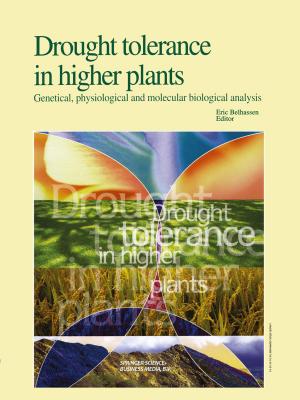The Nature and Origin of Granite
Nonfiction, Science & Nature, Science, Earth Sciences, Mineralogy, Geology| Author: | W.S. Pitcher | ISBN: | 9789401158329 |
| Publisher: | Springer Netherlands | Publication: | December 6, 2012 |
| Imprint: | Springer | Language: | English |
| Author: | W.S. Pitcher |
| ISBN: | 9789401158329 |
| Publisher: | Springer Netherlands |
| Publication: | December 6, 2012 |
| Imprint: | Springer |
| Language: | English |
The origin of granite has for long fascinated geologists though serious debate on the topic may be said to date from a famous meeting of the Geological Society of France in 1847. My own introduction to the subject began exactly one hundred years later when, in an interview with Profes sor H. H. Read, I entered his study as an amateur fossil collector and left it as a committed granite petrologist - after just ten minutes! I can hardly aspire to convert my reader in so dramatic a way, yet this book is an attempt, however inadequate, to pass on the enthusiasm that I inherited, and which has been reinforced by innumerable discussions on the outcrop with granitologists of many nationalities and of many shades of opinion. Since the 1960s, interest in granites has been greatly stimulated by the thesis that granites image their source rocks in the inaccessible deep crust, and that their diversity is the result of varying global tectonic context. So great a body of new data and new ideas has accumulated that my attempt to review the whole field of granite studies must carry with it a possible charge of arrogance, especially as I have adopted the teaching device of presenting the material from a personal point of view with its thinly disguised prejudices.
The origin of granite has for long fascinated geologists though serious debate on the topic may be said to date from a famous meeting of the Geological Society of France in 1847. My own introduction to the subject began exactly one hundred years later when, in an interview with Profes sor H. H. Read, I entered his study as an amateur fossil collector and left it as a committed granite petrologist - after just ten minutes! I can hardly aspire to convert my reader in so dramatic a way, yet this book is an attempt, however inadequate, to pass on the enthusiasm that I inherited, and which has been reinforced by innumerable discussions on the outcrop with granitologists of many nationalities and of many shades of opinion. Since the 1960s, interest in granites has been greatly stimulated by the thesis that granites image their source rocks in the inaccessible deep crust, and that their diversity is the result of varying global tectonic context. So great a body of new data and new ideas has accumulated that my attempt to review the whole field of granite studies must carry with it a possible charge of arrogance, especially as I have adopted the teaching device of presenting the material from a personal point of view with its thinly disguised prejudices.















